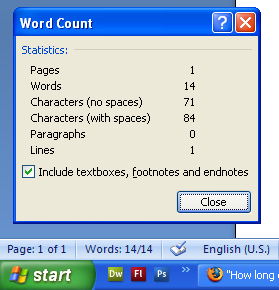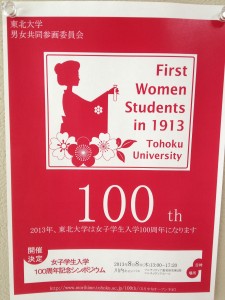blogging expectations extensive reading facebook graded readers materials online resources readers school management
by sendaiben
2 comments
Graded Reader Word Counts
Right, this is the third and final post (for now) about graded readers and word counts. From now on, I will be posting about this issue only at the Facebook page I have set up to co-ordinate the various proposed campaigns.
http://www.facebook.com/GradedReaderWordCounts
I think as well as the boycott, it would be useful to encourage teachers to write to publishers directly, as well as create some educational resources aimed at informing publishers about the issue.
Thanks for all the support and suggestions so far, and hopefully see you on Facebook!
curriculum extensive reading graded readers materials readers school management university
by sendaiben
6 comments
More thoughts on the graded reader boycott
I really enjoyed reading all the replies to yesterday’s proposal. A few people thought that calling for a boycott was a bit harsh, but it was very interesting that so far not one person has offered a reason for publishers not to print word counts on graded readers.
My personal take is that some editors are not aware that word counts are a useful and, for some teachers and programs, essential tool.
I am going to proceed with the boycott. To assist in that effort and to help connect with publishers who are not yet aware of the issue, I am going to create a website listing various graded reader series in three categories:
- A Greenlist of series that clearly print accurate running word counts on books
- A Greylist of series that do not print word counts on books, but do make full and up-to-date word count information available on the Extensive Reading Foundation website
- A Blacklist of series that do not print word counts on books, and also do not make word count information available on the ERF website
I hope this will become a useful resource for teachers and institutions when they are choosing materials for their classes and programs. The site will be maintained and updated if conditions change (ie a publisher starts printing word counts on books, or makes the information available on the ERF site).
blogging expectations extensive reading graded readers materials readers school management
by sendaiben
12 comments
Let’s boycott graded readers that don’t print/publish word counts
Right, I have had enough.
Our graded reader program uses word counts to track student progress. I believe this is superior to using pages or books or time. It makes it easy to compare students across levels, and to standardize goals and progress.
Every year, I spend days searching for word counts, writing them in books, putting them on our website, and even counting words by hand because the publisher refuses to release the word counts for the book (why, Black Cat, why?).
Well, I’m not going to do that any more. I understand that each publisher is free to make editorial and design decisions, and not printing word counts on books is one of them. However, I am also free to decide which books I buy, and I would like to say publicly here that I will no longer be ordering graded readers that do not have word counts printed clearly on them. I have an unlimited budget here at Tohoku University, and a considerable one at Cambridge English, and from now on I will be using those funds exclusively to buy readers from publishers that listen to teachers when they say that they need the word counts on the books.
I would like to invite other teachers that use extensive reading and graded readers to join me. Please contact your sales rep/book distributor and let them know that you care about this issue. I’m guessing that we will see some changes fairly quickly if enough people get involved.
Are you with me? 😉
conference evaluation expectations presentations public policy teaching TED
by sendaiben
leave a comment
Ken Robinson’s latest talk
Ken Robinson, the most popular speaker on the TED website, and someone who talks about education to boot. I’m guessing many of my readers have seen this talk already, but just in case I’m putting it on here.
Ken Robinson is one of my favourite speakers. He is incredibly skilled. Notice how he speaks for 20 minutes in the video above, with no notes, no slides, nothing to support him, and still manages to be compelling and stay on track. I can only imagine the hours of practice that went into that one off-the-cuff seeming talk.
This particular talk struck a chord because it seems to go against everything I’m working on at the moment in terms of setting standards and expectations at my university. However, once I thought about it, our programs involve setting expectations but then giving students a lot of leeway as to how they meet them (which books they choose to read, how they talk about articles, which websites they choose to use). We don’t expect the same from all students, but we expect all students to put in similar amounts of time and effort (or understand the consequences of not doing so).
Having watched the talk, do you see any connection to your own teaching practice?
blogging expectations life in Japan personal university
by sendaiben
4 comments
Women in Japan
I just saw this poster in my building commemorating the fact that 100 years ago in 1913, Tohoku University was the first university in Japan to admit women as students. I didn’t know that, and I am quite pleased to be working at such a progressive place (here’s hoping they’ll be progressive enough to allow me to stay on past my initial contract LOL).
This is interesting to me in two ways:
1) has women’s place in Japanese society really improved all that much in 100 years?
2) is society going to facilitate women working in the future?
It always struck me as strange that there are such structural and societal limitations on women in a democracy where they make up more than half of the electorate… but I have come to realize that a lot of the obstacles working women in Japan face come from societal expectations, often voiced by other women. Japan seems to be one of the last holdouts of the housewife mother, to an extent that I haven’t seen in Europe of the US. Specifically, I am thinking about how volunteer and community groups (like PTAs, chounaikai, sports team parent groups, etc.) make no efforts to cut working mothers any slack. If anything, they seem to pick on them, at least in my limited experience.
At the same time you get politicians making asinine comments like this and you wonder if things are going to change in the future?
Looking at Japan’s demographic future (the government projects an aging population of less than 100 million by 2050), and lack of plans for mass immigration (this is the government’s focus at the moment, but I can’t see many people applying), women seem to be the economy’s last shot…
And yet women seem to have expectations of men that are becoming increasingly unrealistic, at least according to the small sample in the link. This has been mooted as one of the main contributing factors to the low birth rate -after all, if you don’t have enough money to get married, you probably aren’t going to be having children either (or at least one would hope so).
What do you think? Is Japanese society supportive of women choosing what to do in life? Can you see it changing in the future?




